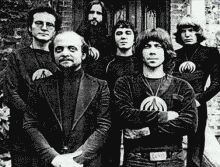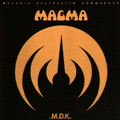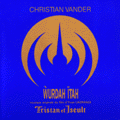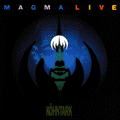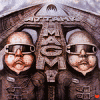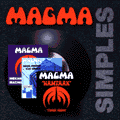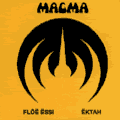Hha´/Live
1975
|
Live double album from Christian Vander's zeuhl prog-nosticators.
While live-doubles from the 70s may seem like a tired cliche, this one lives up to the hype. The band is full form, tearing through all phases of their career with amazing precision and inspiration. For the first time, the players' jazz backgrounds come to the fore, and the overall sound is akin to fusion bands like Return To Forever and the Mahavishnu Orchestra.
For newcomers, this is probably the best place to start. The first disc contains the complete "Kohntarkosz," thought by many to be the group's finest piece. On the second disc, tunes like "Hhai" and "Lihns" showcase Vander's melodic side. Throughout, the sound quality is outstanding, so if you only buy one Magma album in your lifetime...
Representative tracks
Kohntarkosz, pts. 1&2: Another Magma epic, but this one is a little less doom-leaden than MDK. Begins with the cry, "Hamatai!," and from then commences an inspired performance of a piece with many climaxes. If you aren't really into long prog-rock songs, or think the idea of French people with guitars is just a little "fruity," then this probably isn't for you. Truthfully, the operatic singing, frantic, wailing violin, and spaztic, growling bass put off more than a few prog fans. This piece is something like Can with more chops, and a flare for the dramatic: much extended grooving, impressionistic, celestial keyboard washes, and an overall feeling of fantasy and science fiction. In a word, Magma.
Hhai: Much more down-to-earth tune that encapsules the apparent joy with which the group performs. Up-tempo fusionoid 6/8 groove with Ponty-esque violin melody, but the real attraction here is Vander's own operatic warbling which leads off the tune. If you're not turned off at his point, you're hooked.
|

